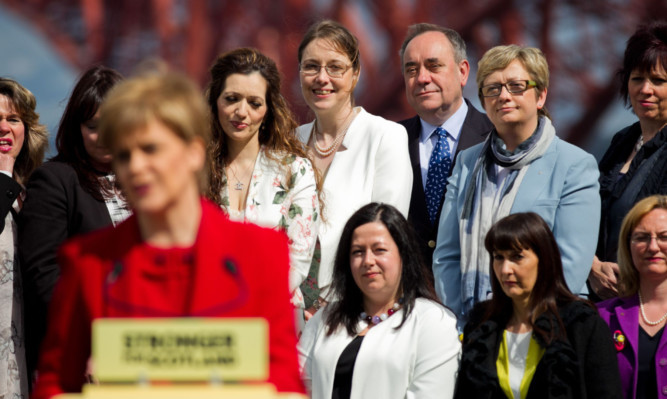For those of us in Scotland about 50% who did not vote for the SNP, the election result was as grim as it could be.
You can’t argue with democracy and the 56 Nationalist MPs now in Westminster, although an unusually large cohort, won in the usual, first-past-the-post way.
That is sobering for Unionists, coming so soon after we successfully staved off separation. A common comment on Friday morning from friends in the south was “Scottish politics is a mystery to most of us down here”.
It’s a mystery to us too but some things are now becoming clearer and in spite of the alienation suffered by half the population over the SNP victory, there are some reasons to be cheerful.
The first is that among those who voted for Nationalists are a group, admittedly a minority, who were in the No camp last September.
They have not all changed their minds about secession but decided that the SNP candidate had more to offer their constituency than any of the other parties.
These swinging voters could swing back again and will be watching closely to see how their new man or woman performs in London.
And the people of, say, the Borders or Perthshire who voted overwhelmingly No in the referendum will be dismayed if their SNP member uses his or her position to replay that divisive ballot.
As that contest confirmed, when only four out of 32 council areas voted Yes, SNP support does not always translate into support for independence. The Union may look shakier after last Thursday but it survives.
For Scots who wish it to thrive, there are other signs of hope.
The slick party machine that stage-managed each Nationalist campaign and made the rookie MPs recite the same victory speech, may come unstuck sooner than we expected.
As early as Saturday, Alex Salmond had broken ranks and declared the election a “staging post” on the road to independence, in direct contradiction of party leader Nicola Sturgeon’s insistence that May 7 was not about separation.
SNP discipline has been the envy of the other parties and its current electoral success, in Holyrood and Westminster elections, has depended largely on its skill in keeping internal dissent under wraps.
Although in March the party issued an edict to ban any of its MPs from criticising the official Nationalist line, there will now be two SNPs to rein in. Sturgeon, capable as she is, will surely struggle to keep Salmond under control when she is up here and he is down there.
The same goes for the new crop of politicians.
A long way from home, they may be drawn to the rallying cry of the old party leader rather than to the more considered approach of the new one.
By their September conference, the mood of the party will be revealed, setting the scene for the Holyrood election in 2016.
Also by then, the talents of our representatives will have had several months to unfurl in the glare of the London spotlight.
Scots, whatever their political persuasion, should hope that their nation’s reputation is not brought into disrepute by disruptive elements.
Any MP of any party deserves respect if they serve their constituents well.
However, Nationalists who try to undermine the system too blatantly will be at the mercy of parliamentarians of far greater experience than those they have encountered so far in Edinburgh.
Salmond has said the SNP will make the “political weather” but if he and his colleagues use their new jobs to foment dispute they will not be honouring their promise to give Scotland a stronger voice. A louder voice maybe but that is not the same thing.
The SNP contingent must exercise remarkable restraint in their natural inclinations (to destroy the UK) if they are to represent all their constituents and not just the half who agree with them.
Meanwhile, back in the Scottish Parliament, will the Nats left behind to deliver devolved domestic services put more vigour into the task than they have done to date?
Ruth Davidson, leader of the Scottish Tories, wrote in a Sunday newspaper: “As Nicola Sturgeon embarks on another round of Westminster politicking this week, it will be our job to remind her that the shop she is paid to run the Scottish government urgently needs her attention.”
It will not just be the Conservatives demanding less introspection from the SNP here, after five years of constitutional obsession.
Voters, having succumbed to the SNP’s promises, will want something in return improved schools and hospitals, for example.
If these don’t materialise, their disappointment will be registered at the ballot box next May.
Looking for fissures in the rock of SNP support may be clutching at straws but such cracks herald hope for the Union.
The backlash begins.
